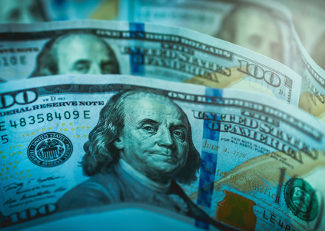Tokyo Olympic Gold Medals to Be Made from Recycled Electronics?
image: Michael Phelps loves gold so much he collects it! Rio de Janeiro, 2016
When a country hosts the Olympics, where do they get the precious metals used to manufacture the gold, silver, and bronze medals? Traditionally, local mining companies donate them to the cause. However, Japan has almost no precious metals mining operations of its own. So what will they do when Tokyo hosts the Summer Olympics in 2020? They have a rather unique idea in mind: to harvest the necessary materials from recycled e-waste.
Gold in Electronics
Gold, silver, and bronze are all used in the manufacture of circuitry and components for various electronic devices, including phones, computers, televisions and more. Then, when those electronics are discarded, the precious metals just sit there unused.This is called e-waste, and Japan is the third largest producer of it in the world.
Japan produces an estimated 650,000 tons of e-waste every year. And that number continues to grow, as consumers are replacing their electronic devices with newer models with greater rapidity. All told, the amount of gold currently sitting unused in Japan’s discarded electronics makes up an estimated 16% of the world’s total supply. Likewise, their discarded silver makes up about 22% of the global total.
E-Waste and Recycling
Even with all of that gold and silver sitting unused in Japan, is their plan to mine recycled electronics feasible? Of the 650,000 tons of e-waste generated by the country annually, only 100,000 tons are currently collected for recycling—despite a 2013 law requiring all small home appliances to be recycled.
While that could still yield enough gold to make the medals, it’s important to note that a significant portion of the recovered materials is already allotted for the manufacture of other appliances. To use it for the Olympics instead would require electronics companies to purchase a lot more gold to produce their devices, costing more and triggering a rise in prices
Could Japan generate enough gold, silver, and bronze to create the necessary Olympic medals without impacting electronics manufacturers? Over the course of the next four years, it’s possible. But in order to do it they’d have to implement further legislation and enact a nationwide recycling initiative for all devices and appliances.
If they’re able to do this effectively, then their stock of gold would increase dramatically, and it could easily be possible to collect enough of all three precious metals to supply the entire Tokyo Olympics and Paralympics.
Environmental Consciousness and the Olympics
Though Japan is the first country to propose mining their e-waste to make Olympic medals, they’re far from the first host country to be mindful about their environmental impact. The medals for the Rio Olympics were also manufactured with an eye towards sustainability.
Their gold was mined without using mercury, which has often been utilized in the past to extract the metal from the ore, despite its harmful effects on people and the environment. The silver and bronze medals, meanwhile, were both made from 30% recycled materials. Even the ribbons from which the medals hang were made from plastic bottles.
Throughout the entire process, from mining to manufacture, the Rio Olympic committee made sure to use environmentally friendly practices and follow strict criteria for sustainability. However, Tokyo’s plan for recycling e-waste stands to have an even bigger positive impact on the environment.


